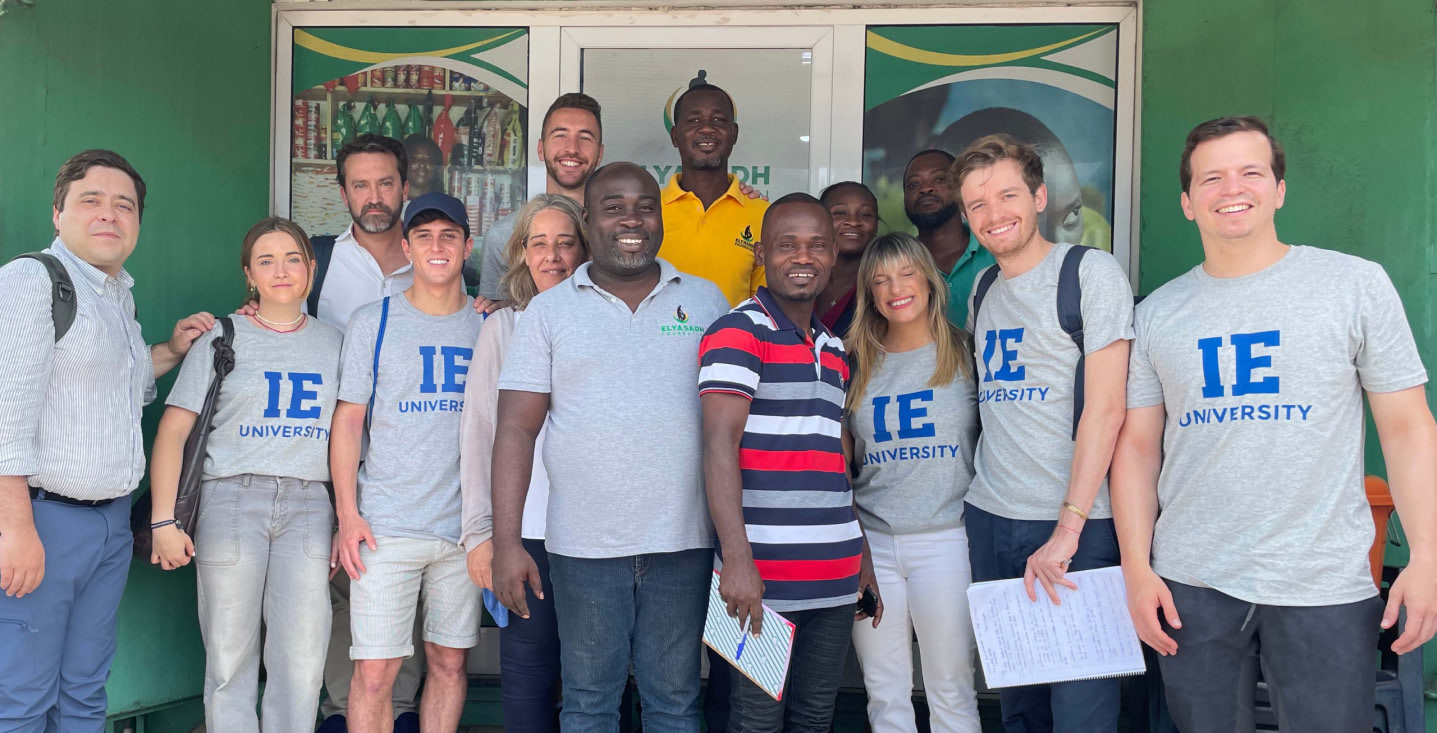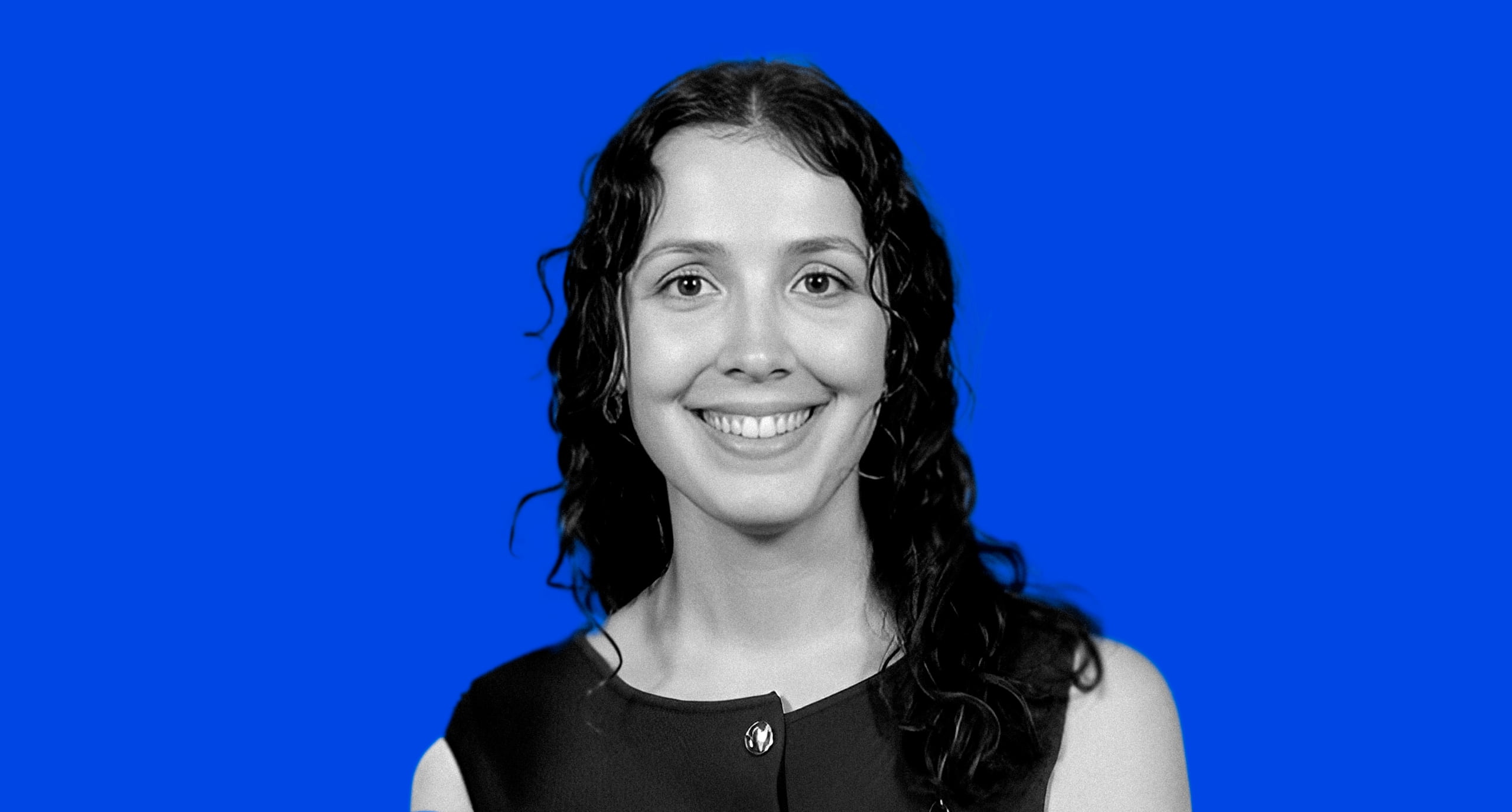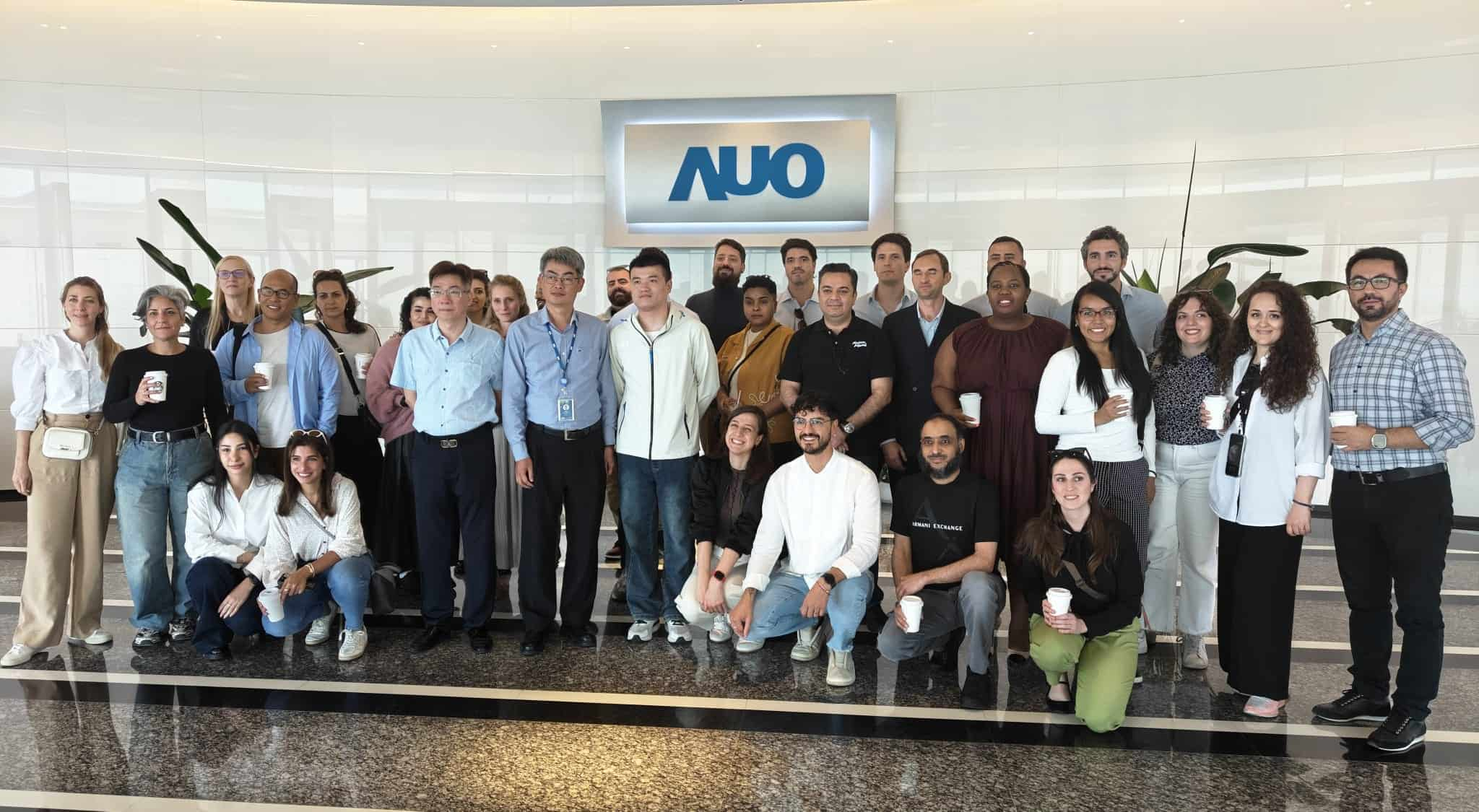17/11/2023
Angélica Partida-Hanon started her academic journey earlier than most. Born in Mexico and of Lebanese and Spanish descent, she moved to Madrid to carve out her future path. Currently working as a data scientist focused on institutional clients and sales at Santander Corporate and Investment Banking (CIB), Angélica shares her expertise with her students in the Master in Software Engineering at IE University.
A scientist in the banking industry, Master in Software Engineering professor Angélica Partida-Hanon has an incredibly impressive professional profile—and it’s still evolving.
At just 13 years old, she started studying engineering at university. Due to all the projects she did in class, she feels that her studies also marked the start of her professional career. What’s more, she began her journey in teaching at the same time. As she studied, she spent every free moment tutoring fellow engineering students in calculus.
Angélica’s dream was to become a biologist, but she couldn’t afford to take that route then. So, she chose to study engineering instead. When she was 17, she made the move to Spain, alone. With savings from her previous job, she started studying biology in Madrid while simultaneously working as a freelancer and a tutor. She later earned her PhD in biochemistry, molecular biology and biomedicine at the Spanish National Research Council (CSIC). Soon after, she began working at Santander doing mathematical models for credit risk. She later moved to Santander Corporate and Investment Banking (CIB), where she still works in data science today.
Tech skills for the future
Embracing the spirit of continuous learning, Angélica is currently in the middle of her second PhD. But more than just learning, she also loves to share her knowledge and passion for data and big data analytics with her Master in Software Engineering students. She finds that today’s most important companies are those related to technology and those that aren’t, need a tech strategy in order to survive. “So in a way,” Angélica explains, “data science and everything related to data analytics is moving the world right now.”
Describing the rapid advancements as a technological revolution, Angélica says that the Master in Software Engineering will help students become highly in-demand professionals.
“We need people who are close enough to new technologies to see their threats, as well as their advantages,” she says.

Angélica believes that software engineering is an important field that is affecting the rest of the markets and that, just as learning a new language could impact your professional career positively, learning tech will too.
Aside from the technological aspects of the program, the Master in Software Engineering, according to Angélica, will help students gain necessary soft skills such as critical thinking. “I help my students think like scientists; when they see a problem or something they are not used to, they use their newly developed skills to see if they are unconsciously biased or not.”
A complete program for all
As a biologist thriving in corporate and investment banking, Angélica would like to remind students that the Master in Software Engineering is heavily influenced by coding. However, students will also learn to think in a new way, allowing them to offer a unique perspective to tech companies or teams. “For example, right now, philologists are people who study languages and are in high demand for generative language models because they have to create semantically and syntactically accurate texts, something I wouldn’t be able to do,” she says.

“I am here, however, to teach students to start speaking in this new language of tech.”
The Master in Software Engineering is both practical and innovative, allowing students to keep track of trends and discover how to challenge new systems. Reaching this balance of adaptation and resistance has taken Angélica about 20 years of experience—and she has condensed those 20 years into her lectures. “We will transmit the lessons we had to learn by trial and error to give students a direct path toward making big decisions that are influenced by data and by the use of data.”
Designed to allow students to carve out their own path, the program dives into what Angélica refers to as exponential technologies: the cloud and cloud services, AI, SaaS, cybersecurity and big data. Working with these new, emerging technologies requires experience. Once students are familiar with them, they can shift toward being more technically oriented or more management-centric.
“We want our students to learn how to choose tools and to improvise if they don’t have that specific tool,” she states. “It’s not just about knowing how, it’s about knowing when and why.”

Nurturing success through tech and data
Once Master in Software Engineering students learn these skills, they are able to go on to work in a huge spectrum of roles, from chief data officer and big data analyst to investment banker and so much more. “I’m a biologist who works in investment banking, thanks to data,” she says. “I am also a teacher, thanks to data.”
Angélica goes on to state that students shouldn’t come into the program with the sole focus of becoming a specialized software engineer. Instead, as someone who wants to learn to think like a scientist and use their tools to adapt to anything that comes their way. “Stop and think. That’s one of my most important mantras. Think like a scientist. Think like a little kid. Stay curious, be flexible and keep thinking.”








